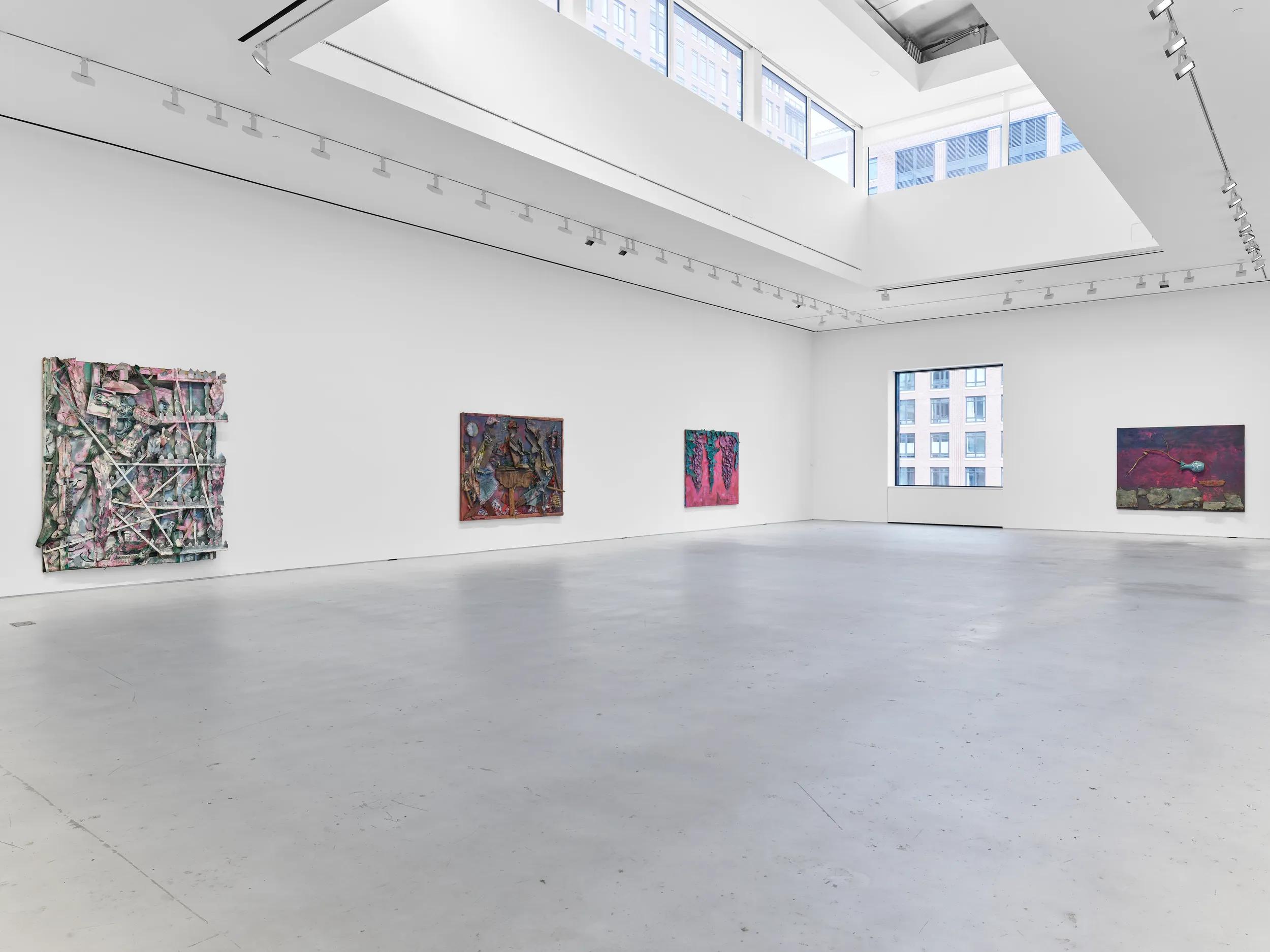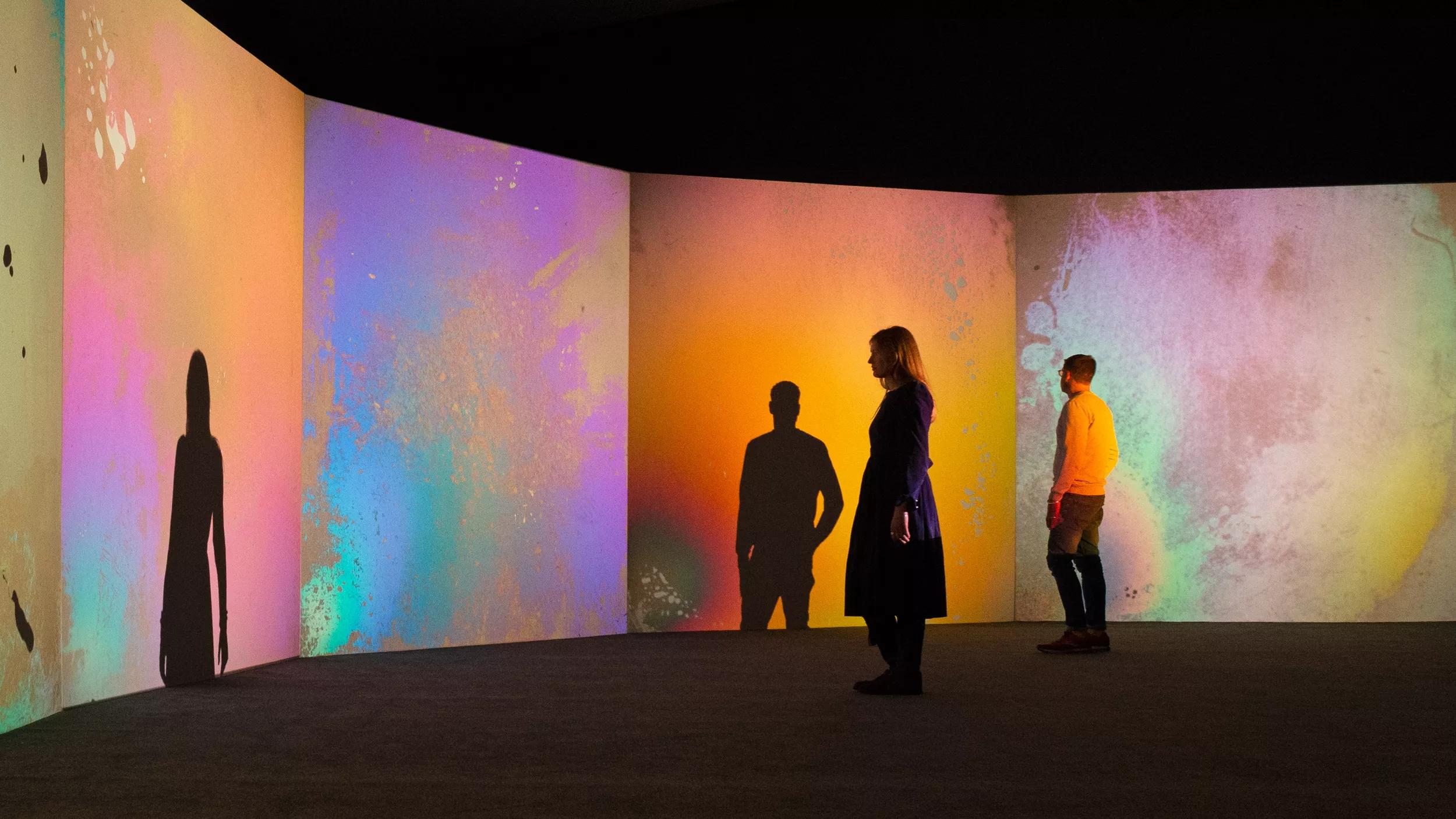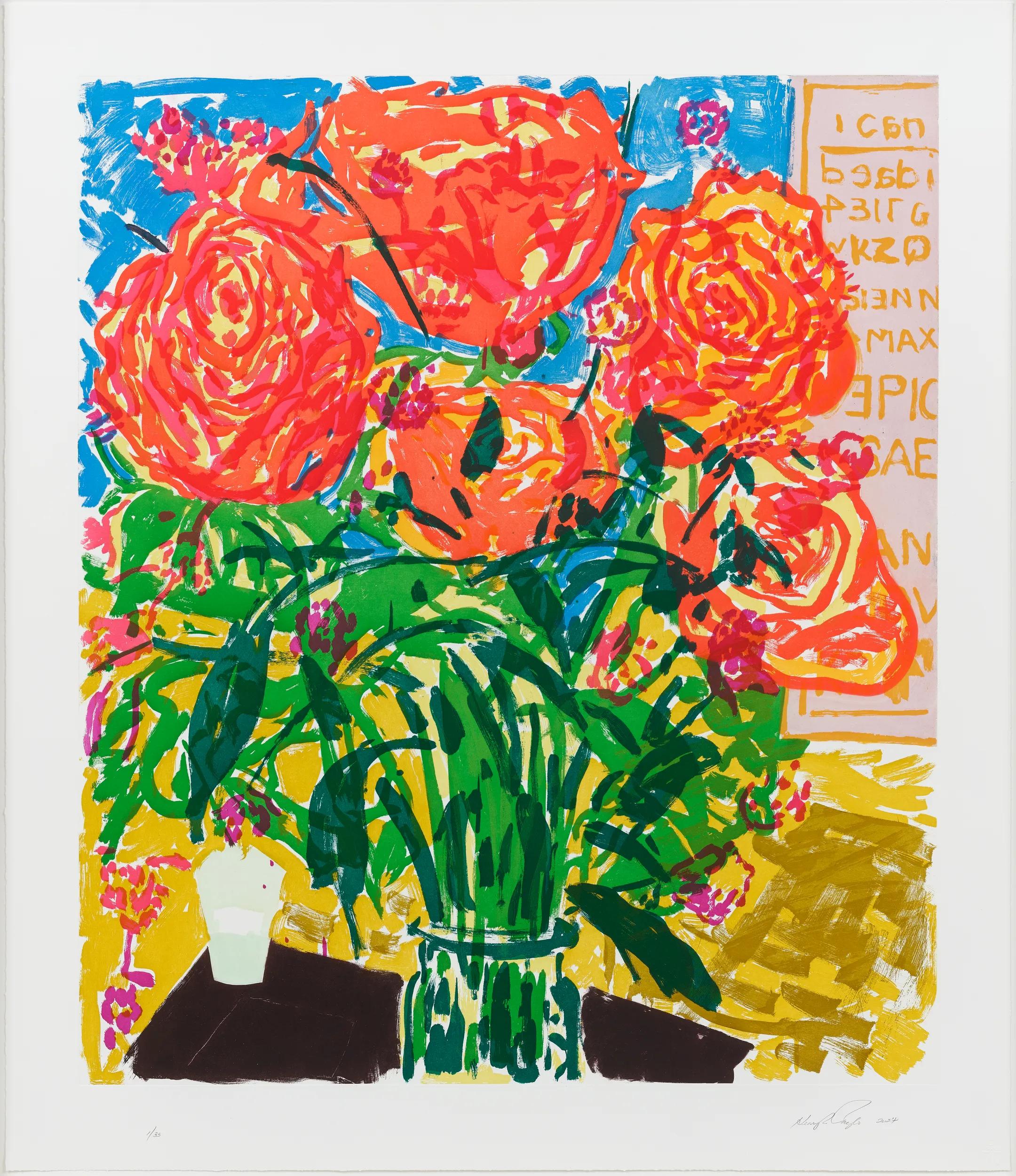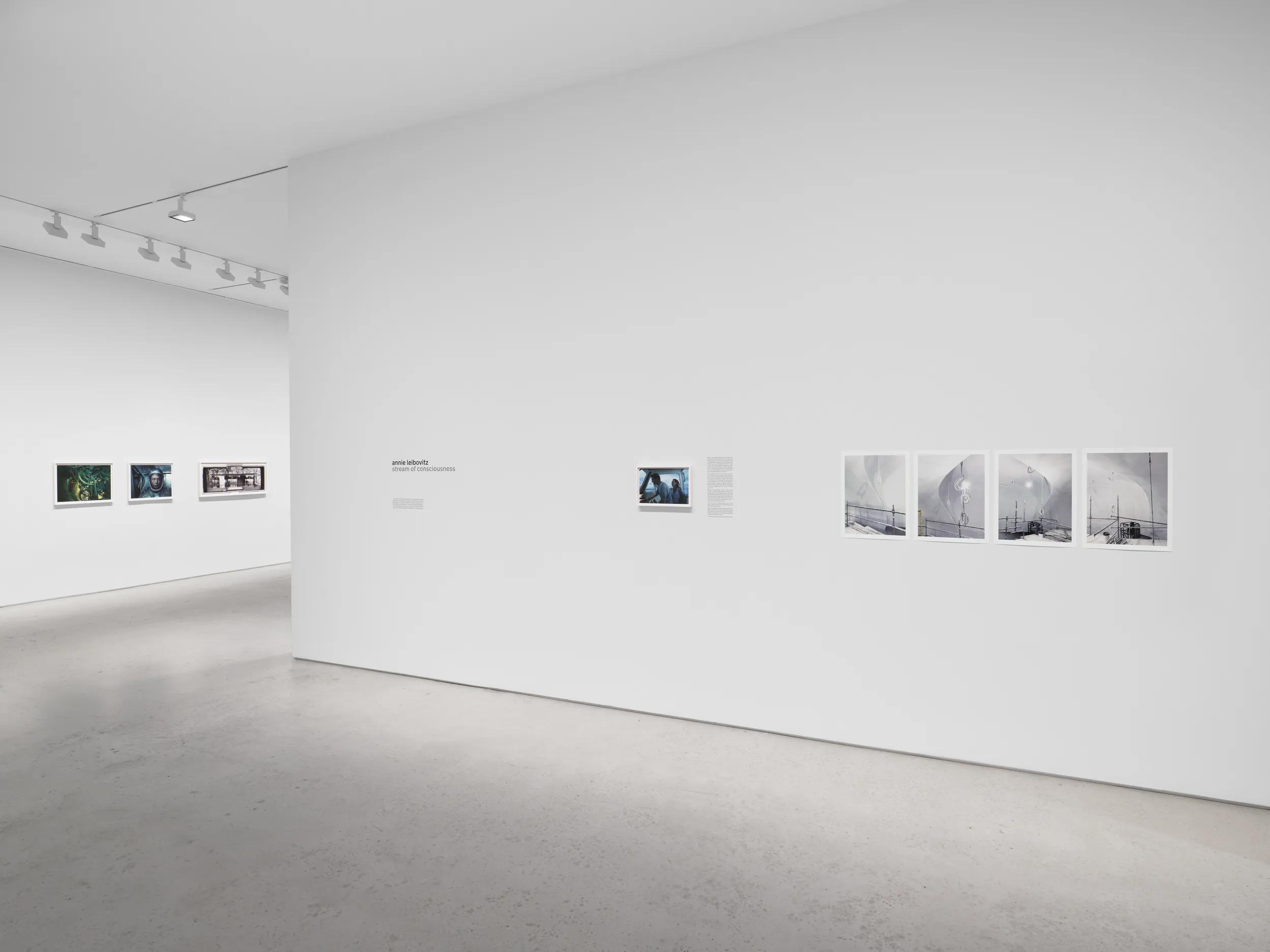
Rachel Scott: Weaving My World
19 Nov - 11 Feb 2023
Wed – Sat, 10 am – 1 pm and 2 – 4 pm
Make, Somerset
‘Making things by hand for me is the only way and has been since I was a child. What else would I do with my time?’—Rachel Scott
About
Rachel Scott’s hands are forever busy. She weaves every morning and spends her evenings spinning wool for the following day’s weaving, all in a small studio at the top of her house in Pimlico, London. ‘weaving my world’ is a homage to Scott’s individual style of homemaking. Just like the floors, walls and spaces of her domestic life, the exhibition celebrates her vast creative output, including handwoven rugs, braided rag rugs, knitted patchwork covered chairs and cushions, bags, scarves, patchwork dresses, woollen suits, tea and chess sets, and early paintings dating from the 1960s.
Scott’s insatiable drive to make and create has been with her since childhood and is something that she has passed on to her own children. She says that she and her family of artists are ‘all in it together’ and their work fills her home. In addition to Scott‘s own work, the exhibition will feature pieces by her husband, abstract expressionist painter, Frank Bowling and her daughters, Marcia and Iona Scott.
The domestic and familial needs of the household have often been the driving force behind Scott‘s creative ventures, giving her work a practical purpose that is embedded in the everyday. The stairs up to Scott’s studio are covered in tens of her rugs sewn together lengthwise. She is rightfully proud that after decades of use they remain tough, durable and hardwearing, the only sign of age being the black wool which has turned a deep rust colour in the sun-soaked hallway. These rugs embody Scott’s journey to weaving, which first began in order to replace a worn-out stair carpet in 1976. Scott finds inspiration from the rich history of British wool and only uses fleeces from rare breeds of native sheep, ensuring she remains connected to her medium and rooted to her home in Britain. Scott prefers the rugs to be walked on rather than hanging on the wall, partly to keep the moths at bay, but also because that way they fulfil their original function.
There is a beautiful symbiosis between Scott’s creative work and her domestic life; so much of her life is embodied in her work and so much of her work surrounds and enriches her daily life. Scott only wears clothes that she has made; her patchwork dresses include remnants of her children’s garments, while her woollen suits contain yarn from unravelled jumpers that she made for her father and brother as a teenager. She wastes nothing, working with the fabric of her home life, transforming what is old, worn or simply at hand into something new, useful and beautiful.
About Rachel Scott Rachel Scott studied painting at the Royal College of Art from 1959 – 64 and was elected a member of the London Group in 1964. Her early paintings feature rooms, passages and staircases in earth tones, sometimes with a figure sitting on a chair or sofa. By 1970 they evolved into black, white and grey depictions of empty rooms and tunnels. From 1976 – 79 they were landscapes of Dorset in greens and blues, before she stopped painting completely in 1979. During the 1970s, Scott had her own kiln and made pinch bowls, plates and cups with animal heads as handles, and small farm, tea and chess sets in red and buff clay. She made small toys out of pipe cleaners bound with wool, sold through numerous prestigious outlets in London at the time.
Scott began weaving in 1976, using a spinning wheel that her brother made with a bobbin screwed to a Singer sewing machine base. Scott’s fleeces come from a variety of British sheep, mainly raised in Devon, Buckinghamshire and Cheshire: Shetlands (fine/ brown, grey, black), Manx Loaghtans (soft / brown), Black Welsh Mountains (black) and Herdwicks (coarse / grey). The wool is spun directly from the fleece and the yarn is never dyed. The designs are true to the nature of traditional weaving, utilising straight lines to construct geometric shapes. Scott‘s interest lies in the weaving itself, judging which gradations and textures to use, from dark to pale, soft to coarse and how they will then blend and contrast with the surrounding colours.
From 1990 – 2018, Scott spent the spring and autumn in New York with her husband, Frank Bowling. During this period her focus turned to knitting and patchwork, which felt more manageable outside of her home studio. This was an incredibly productive period for her expansive collection of jackets, scarves, cushion covers, bags, hats, and furniture covers. Scott is now based in London and spends her mornings weaving and her evenings spinning, making around 20 – 30 rugs a year.
Image: Rachel Scott at her home in Pimlico, London, 2022. Photo: Dave Watts
Installation views































1 / 14
Current Exhibitions

Firelei Báez
The Fact That It Amazes Me Does Not Mean I Relinquish It
13 September 2024 – 5 January 2025
Downtown Los Angeles

Thornton Dial - The Visible and the Invisible
2 November 2024 – 11 January 2025
New York, 22nd Street

Firelei Báez
The Fact That It Amazes Me Does Not Mean I Relinquish It
13 September 2024 – 5 January 2025
Downtown Los Angeles

Thornton Dial - The Visible and the Invisible
2 November 2024 – 11 January 2025
New York, 22nd Street
1 / 10



















